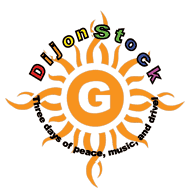 |
The DijonStock Digital Home Recording Support Forum*** USER REGISTRATION DISABLED! FOR ACCESS TO THE BOARD, MAIL TO registration AT dijonstock DOT com. THANK YOU *** |
| It is currently Tue Apr 16, 2024 7:33 am |
 |
The DijonStock Digital Home Recording Support Forum*** USER REGISTRATION DISABLED! FOR ACCESS TO THE BOARD, MAIL TO registration AT dijonstock DOT com. THANK YOU *** |
| It is currently Tue Apr 16, 2024 7:33 am |
|
All times are UTC + 1 hour [ DST ] |
 
|
Page 1 of 1 |
[ 18 posts ] |
|
| Author | Message | ||||
|---|---|---|---|---|---|
| MitchM2009 |
|
||||
Joined: Tue Jul 13, 2004 9:58 pm Posts: 838 |
|
||||
| Top | |
||||
| Scooter B |
|
|||||
Joined: Sun Jul 25, 2004 5:35 pm Posts: 1714 Favourite food: Varies Machine type: AW16G |
|
|||||
| Top | |
|||||
| mrskygod |
|
|||||
Joined: Wed Jul 14, 2004 1:48 am Posts: 11452 Location: Godly Taxas Favourite food: Frog Legs Machine type: AW4416 |
|
|||||
| Top | |
|||||
| Scooter B |
|
|||||
Joined: Sun Jul 25, 2004 5:35 pm Posts: 1714 Favourite food: Varies Machine type: AW16G |
|
|||||
| Top | |
|||||
| MitchM2009 |
|
||||
Joined: Tue Jul 13, 2004 9:58 pm Posts: 838 |
|
||||
| Top | |
||||
| mrskygod |
|
|||||
Joined: Wed Jul 14, 2004 1:48 am Posts: 11452 Location: Godly Taxas Favourite food: Frog Legs Machine type: AW4416 |
|
|||||
| Top | |
|||||
| MitchM2009 |
|
||||
Joined: Tue Jul 13, 2004 9:58 pm Posts: 838 |
|
||||
| Top | |
||||
| mrskygod |
|
|||||
Joined: Wed Jul 14, 2004 1:48 am Posts: 11452 Location: Godly Taxas Favourite food: Frog Legs Machine type: AW4416 |
|
|||||
| Top | |
|||||
| Scooter B |
|
|||||
Joined: Sun Jul 25, 2004 5:35 pm Posts: 1714 Favourite food: Varies Machine type: AW16G |
|
|||||
| Top | |
|||||
| MitchM2009 |
|
||||
Joined: Tue Jul 13, 2004 9:58 pm Posts: 838 |
|
||||
| Top | |
||||
| mrskygod |
|
|||||
Joined: Wed Jul 14, 2004 1:48 am Posts: 11452 Location: Godly Taxas Favourite food: Frog Legs Machine type: AW4416 |
|
|||||
| Top | |
|||||
| MitchM2009 |
|
||||
Joined: Tue Jul 13, 2004 9:58 pm Posts: 838 |
|
||||
| Top | |
||||
| CW |
|
|||||
Joined: Tue Mar 08, 2005 4:04 pm Posts: 216 Location: Great White North |
|
|||||
| Top | |
|||||
| Scooter B |
|
|||||
Joined: Sun Jul 25, 2004 5:35 pm Posts: 1714 Favourite food: Varies Machine type: AW16G |
|
|||||
| Top | |
|||||
| Scooter B |
|
|||||
Joined: Sun Jul 25, 2004 5:35 pm Posts: 1714 Favourite food: Varies Machine type: AW16G |
|
|||||
| Top | |
|||||
| MitchM2009 |
|
||||
Joined: Tue Jul 13, 2004 9:58 pm Posts: 838 |
|
||||
| Top | |
||||
| CW |
|
|||||
Joined: Tue Mar 08, 2005 4:04 pm Posts: 216 Location: Great White North |
|
|||||
| Top | |
|||||
| mrskygod |
|
|||||
Joined: Wed Jul 14, 2004 1:48 am Posts: 11452 Location: Godly Taxas Favourite food: Frog Legs Machine type: AW4416 |
|
|||||
| Top | |
|||||
 
|
Page 1 of 1 |
[ 18 posts ] |
|
All times are UTC + 1 hour [ DST ] |
Who is online |
Users browsing this forum: No registered users and 2 guests |
| You cannot post new topics in this forum You cannot reply to topics in this forum You cannot edit your posts in this forum You cannot delete your posts in this forum You cannot post attachments in this forum |